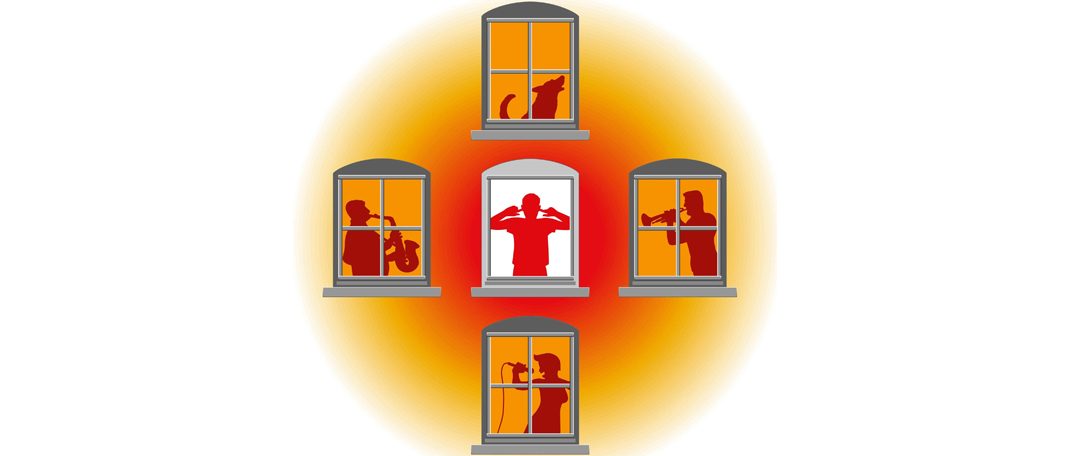According to a new study, older adults who live in noisy neighborhoods may face the risk of developing Alzheimer’s disease or other types of dementia.
Researchers have examined and analyzed a wide range of factors that include sedentary behavior, exposure, loneliness, and airborne pollutants that decide whether they contribute to the development of dementia.
Noisy neighborhood May Increase Alzheimer’s and Dementia Risk
A few epidemiological studies have examined the effect of neighborhood or community noise that refers to the noise of trains, cars, flights, construction areas, and other noises that have cognitive impact or harm in older adults.
A recent study focused on Alzheimer’s & Dementia was published in the journal of the Alzheimer’s Association. It was the first association to carry out such new research in the United States.
The research plays a vital role in which more than 100 million people in the United States face the community noises, and it is exceeding the limits that the Environmental Protection Agency (EPA) advises people to protect themselves against hearing loss.
As stated by lead study author Jennifer Weuve, an associate professor of epidemiology at the Boston University School of Public Health, “We remain in early stages in researching noise and dementia, but the signals so far, including those from our study, suggest we should pay more attention to the possibility that noise affects cognitive risk as we age.”
The study researchers conducted cognitive assessments in 3-year cycles, about 5,227 adults who were 65 years and older participated in the Chicago Health and Aging Project.
Researchers observed them by performing tests of memory, orientation language, and recorded average daytime noise levels in their neighborhoods for the five years preceding the cognitive tests.
In 1993, the study was conducted in which more than 10,000 older adults living on the south side of Chicago participated.
The researchers assessed the levels of noise in the communities where participants lived for five years before the study and used a prediction model for a previous study. They observed various factors including physical activity, race, and socioeconomic status (SES) that might develop the risks of dementia.
Once they examined these factors, the study revealed that older adults who were living in that place faced an increment of 10 A‐weighted decibels (dBA). During the daytime, they had 36% higher chances of developing mild cognitive impairment and 29% higher chances of Alzheimer’s disease.
Sara Adar, the senior study author and an associate professor of epidemiology at the University Of Michigan School Of Public Health in Ann Arbor stated that “These findings suggest that within typical urban communities in the U.S., higher levels of noise may impact the brains of older adults and make it harder for them to function without assistance.”
Researchers also record that exposure to noise or living in a noisy neighborhood may cause health problems ranging from blood pressure to disrupted sleep. Some evidence claims that both poor rest and vascular health can help develop dementia.
The new study authors believe that if the research continues to prove that noise exposure in the United States helps to develop dementia risk, it is possible to convince officials to change policies that promote lower noise levels.
People who reside in louder or noisy regions are prone to develop Alzheimer’s. Alzheimer’s disease is a serious health problem, approximately 5.8 million people with the age of 65 are living with the disease in the U.S. alone. Researchers predict that it will increase to 13.8 million by 2050.
For better and healthy living, you must protect yourself from exposure to noise because that may be linked to an increased risk for Alzheimer’s disease and other forms of dementia.















